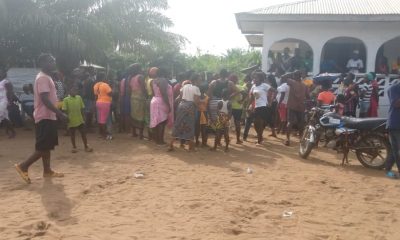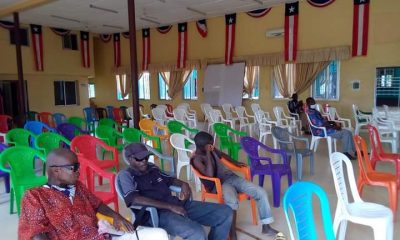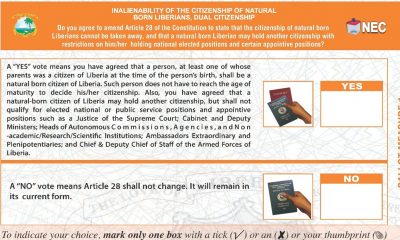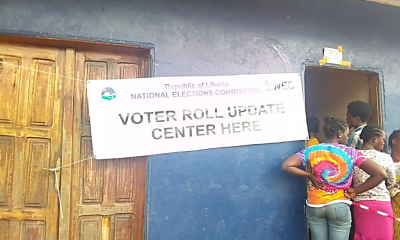Garpolu County – Over 100 youth of Gbarpolu County have deliberated and identified some of the issues that affected the October 10 poll in the county.
At a two-day post-election consultative gathering from October 20-21 held in Bopolu City, they identified poor civic and voter education, and lack of respect for elderly voters, especially women as some of the lessons learned on Election Day.
They are now calling for these concerns to be addressed by the National Elections Commission and relevant stakeholders before the presidential run-off election on November 7.
“We saw the number of invalid votes. It was as the result of poor Civic voters’ education by NEC and partners and also the political parties,” said Marshall Blamah of the Bopolu Youth Accountability Forum.
“We saw that there were some incompetent NEC staff, especially the queue controllers and the voter identification officers, these people must be trained to avoid confusion on runoff day.”
He stressed that elder voters were “not treated well on Election Day”.
In their finding, they described the 88,574 invalid votes out of the 1,641,922 total votes cast in the county as “alarming and was a result of poor voters’ education”.
Jeffery Carter, a member of the Federation of Liberian Youth (FLY) in the county, alleged that civic educators were not engaging voters because their supervisors did not properly monitor them.
“So, we are here to tell NEC and partners that they failed us in the area of civic education and there is a need for them to do better preparation before the run-off day,” Carter said.
Added Annie Godfrey: “I heard the other day on the radio that NEC was going to reduce the invalid votes by 10%, but now it has increased.”
She also pointed out that women were not properly attended to on Election Day.
“Let me bring it down to big belle women (pregnant women) and even the baby mothers, they were stretched in between the lines on election day, this is because the people who were controlling the lines were not prepared well,” she said.
For his part, Lawrence Varmah of the Mano River Youth Parliament could not rule out violence from the challenges that affected the first round of polling.
“While we are commending all Liberians, it is the time that stakeholders look at some of the minor mistakes (that would have led to violence) and address them immediately to avoid reoccurrence,” he said.
Amongst the positive lessons learned, the Gbarpolu County youth hailed the “huge” voter turnout on Election Day and the acceptance of elections results by losing candidates and their supporters.
Already, the National Elections Commission (NEC) has since announced the final results from the October 10th, 2017 Presidential and Representative Elections, declaring that none of the 20 Presidential Candidates obtained the constitutional requirement of 50 percent plus one vote to be declared the winner in the first round of voting.
According to NEC, all of the 5,390 polling places have reported results representing 100 percent of a total of 1,553,348 of the total number of valid votes cast in the October 10th, 2017 presidential and representative Elections in Liberia.
Report By: Henry Gboluma, Jr.









































































































































































































































































































































































































































































































































































































